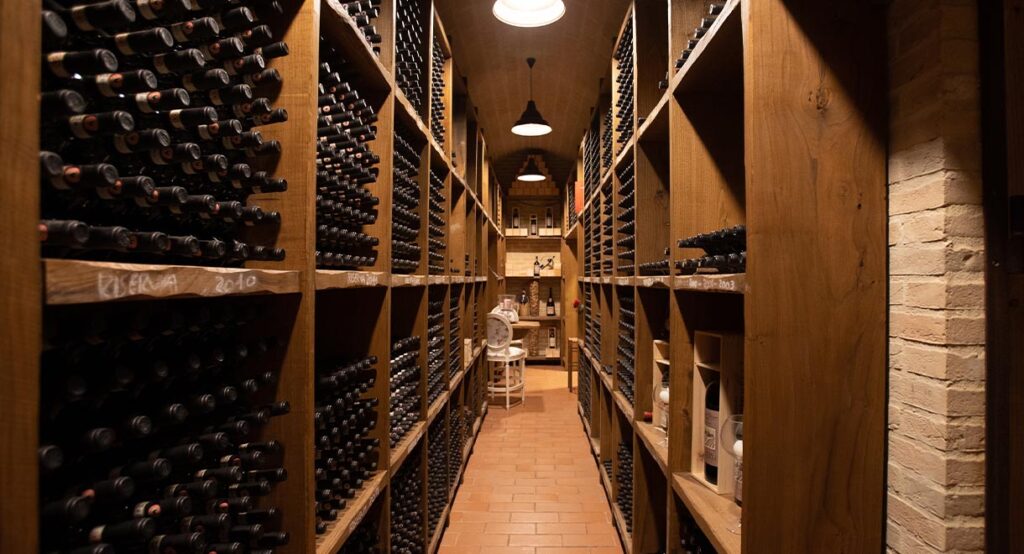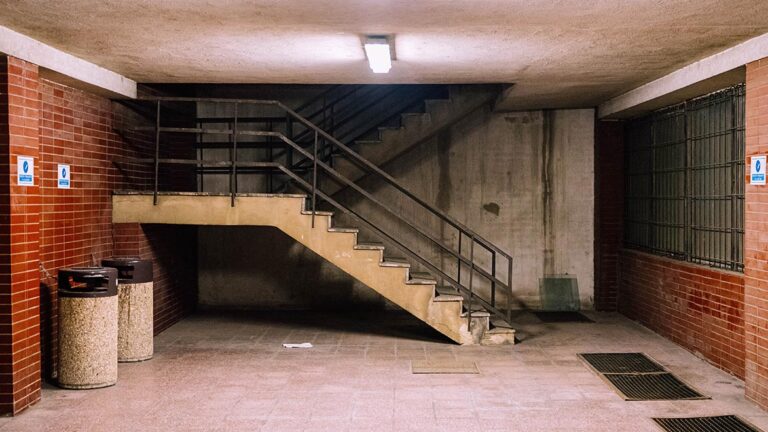A fantastic addition to your home is a cellar or basement. When purchasing a home, considering home improvements, or being aware of the crucial maintenance that safeguards these areas and the rest of your property, it’s important to understand the difference. What is called a cellar and what is a basement? Do you know the differences between them? Please read to find answers.
What Is A Basement?
A basement is a room that is found below a building. Numerous basements have windows, and some even have exterior doors. An entrance to the basement may occasionally be reached by stairs or a ladder. Although basements are frequently used as storage areas, they can also be used as additional bedrooms or living areas.
What Is A Cellar?
Compared to a basement, space is a little more constrained in a cellar. The curb line of a building is frequently lower than the depth of a cellar. Occasionally, people construct cellars next to basements or join them to an external structure. You can climb a ladder or use a staircase to enter a cellar.
The most frequent use of cellars is to store wine, mainly because the areas are cooler and free of direct sunlight, which are ideal conditions for wine storage.
Differences Between Basement And Cellar
Despite the fact that both are rooms that are entirely or partially below ground level, they have different functions. A basement is a floor that is entirely or partially below ground level in a house or other structure. The opposite is a cellar, which is a room used for storage that is located below the ground.
- Purpose
Shelves in a dry cellar are designed to hold wine, canned goods, and produce. If it has the most fundamental conveniences and a safe door, it can offer temporary shelter in the event of bad weather. The basement is used for a variety of things by locals, including as a game room, storage, and craft areas.
- Habitation
A basement has more potential for living space than a cellar and is safer to occupy because of its superior finishing and amenities. Cellars are uninhabitable because they frequently lack proper finishing touches and are only marginally above grade level.
- Size
While basements are larger, more open spaces, cellars are typically smaller, more constrained spaces.
- Height considerations
While basements are more above grade, cellars are built halfway below the curb level. Furthermore, the ceilings are low. A basement is not present if the ceiling height is less than seven feet.
- Exterior access
If the area is accessible from the inside of the house, it is most likely a basement; if you must leave the building to access it, it is a cellar.
- Floor level and type
Many people believe that the basement is floor level while the cellar is not. While basements typically have concrete floors, some people choose to leave them unfinished, most cellars have dirt floors.
- Egress windows
In some localities, a basement is defined as any underground space with sizable windows that permit exit. A cellar is any room devoid of these windows.
Keeping basements and cellars dry and comfortable is the key to preventing mold growth. The need for basement and cellar repairs will be reduced by routine maintenance, which will also ensure that the space is used as a habitat inside the house.

Taking Care Of Your Space
Both cellars and basements have structural walls that help hold your house up. They are both places that are very vulnerable to leaks, moisture, and water issues. Everything else in your house could fall apart if this component breaks down.
You might not frequent that area often. The beauty of it might not interest you. However, it is one of the most crucial components of a property to regularly inspect, maintain, and keep repaired. Nothing else matters if you don’t.
The top things to look out for in these spaces as signs of problems include:
- Musty smells
- Mildew and mold
- Wet drywall
- Condensation on block walls
- Cracked floors
- Cracked concrete block walls
- Damp carpeting or warped flooring
- Cracks and gaps appear around windows and doors
- Noisy or struggling sump pumps
- No graded pipes or drains and interior gutters
Best Uses For Your Cellar
The use of cellars for habitation, sleeping quarters, or rental housing is prohibited. There is probably no emergency exit. Nevertheless, you can still use this space to have a ton of fun. Use them for:
- Wine cellars
- Cigar humidors
- Making your own craft beer
- Bomb shelters
- Storage
- Adding plumbing to old buildings
You can still make these spaces spectacular features that will wow guests and really add extra appeal when it comes time to sell your home.
Best Uses For Your Basement
There is a lot more you can do with a basement in Virginia than a cellar. However, make sure to look for any indications of foundation issues or leaks and fix those first before you get started on any renovations. Avoid having to start over from scratch once more.
Installing egress windows that can be used as exits and entrances may be one of the next steps you take. The moisture, waterproofing, and light issues will be resolved with new windows. They can also assist in establishing this as a legitimate living space.
A window well can be used to add more light or to make a new garden area with a seating area. Potential uses include:
- Extra bedrooms
- Rental apartments
- Home gyms
- Game rooms
- Additional living rooms
- Home theaters
- Home offices
- Laundry rooms
- Indoor swimming pools and home spas
Basement And Cellar Care Tips
The cellar and basement are two areas in your Denver, Colorado home that need routine cleaning and maintenance, just like any other area. If you take good care of them, they will last for a long time and won’t fall apart if you neglect them.
At least once a year, clean the cabinet or shelves in your cellar of any debris. Check it for debris like dust, brush, and styrofoam beads, as well as straw and dirt.
Clean the outside and take care of the compressors and condenser coils, as well as other exterior parts. Regularly inspect the seal (strip around the door) and cellar door to check for fading. Any dents on the seal should be filled with clean water. In doing so, you can be sure that your seal will stay tight and functional for many years.
Make sure there is no obstruction preventing water from flowing freely through gutters and downspout pipes. Make sure tree roots are not encroaching on your property because they can hinder water flow from the basement. Inspect the basement for leaks, especially at the floor plates, and fix basement cracks to prevent seepage.
To control moisture levels in the basement, use a dehumidifier. The ideal humidity level is under 50%. Reducing moisture buildup eliminates dampness, reduces pests’ interest in the space, and helps prevent mold growth.
Check to see that your sump pumps are operating properly and diverting water away from the basement. Following an intense downpour, you don’t want to be caught off guard. Test the alarm if it has one to make sure it is operational as well.
Verify the condition of your concrete floor. If you see beads of moisture on the walls and floor, seal your old concrete again.
Throughout the heating season, maintain a warm temperature in your finished basement (at least 60 °F). When they’re not in use, many people have a tendency to turn down their heaters, which is undesirable. Warming and cooling the air raises the moisture content, which in turn makes the ideal environment for the growth of mold and mildew.
Final Thoughts
As you can see, although the terms are sometimes used synonymously in the US, a cellar and a basement are two different things.
You are now knowledgeable of all the key distinctions between a basement and a cellar. In my experience, most people would benefit more from a basement as it can be used for more purposes.
Also, a basement not only increases the value of a property more than a simple cellar but also provides more extra space. Of course, the cost of maintaining a basement is usually higher than that of a cellar, especially if you use it as a living space.
On the other hand, finishing a basement can be pretty costly compared to a cellar. A cellar might be a better option if all you need is a straightforward place to store food or other items that can’t be damaged by high humidity.
Read More: Basement Fireplace: Types, Pros, And Cons


